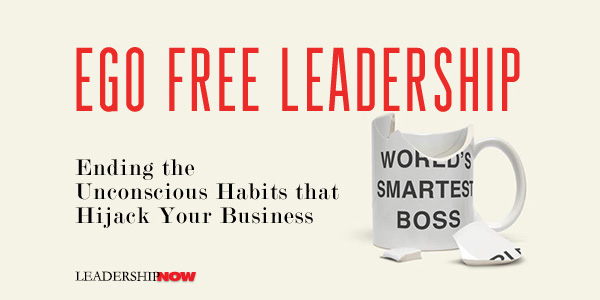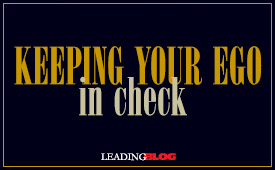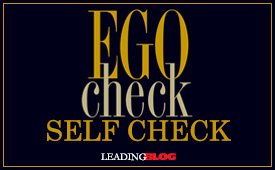 |
 |
04.19.17

Ego Free Leadership
E Each of us has beliefs and fears about our value, and they cause defensive and/or self-promotional behaviors when under stress. Whether in a meeting, a presentation, or a relationship, part of our attention—sometimes all of it—is preoccupied by our view of our self. Are we competent? Respected? Intelligent? Liked? Attractive? Included? Each of us has a set of criteria we unconsciously judge ourselves against. When we measure up, we feel pride, even superiority. When we don’t, we feel uncomfortable, stressed, often afraid.Ego Free Leadership is co-written by executive coach Shayne Hughes, president of Learning as Leadership and Brandon Black the retired CEO of Encore Capital Group. The book tracks Black’s journey from acknowledging to changing the destructive elements of his ego. Once he committed to change, the transformation began in his team and throughout the culture of the Encore organization. Quite effectively, Hughes and Black go back and forth sharing their perspectives on the unfolding transformation. Naturally, it’s not a step-by-step prescription, but it is instructive to see the process because we all share similar issues and thinking. They begin by debunking the "ego is good" myth. Our egos limit us as we try to protect it in various ways. “Our ego can’t stand failure, incompetence, or weakness, so it avoids what is truly challenging us. When we feel at the mercy of what is happening around us we react often distorting reality. “We read criticism, abandonment, judgment, competitiveness, and aggression into a situation where it may not exist.” We seek to fix what we believe is causing our distress resorting to learned behaviors that really don’t serve us well. “Anytime we know intellectually what to do, but our actual behavior is inconsistent or in contradiction, it is a sign we are being short-circuited by our egosystem. These behavioral derailers come in many forms: conflict avoidance, procrastination, defensiveness, people pleasing, shutting down, being argumentative, just to name a few. Upon examination, these ingrained knee-jerk reactions invariably prove to be predictable and recurrent.” It’s not just the way we are, it’s the way we have learned to be. In order to defuse our reactive behaviors, we need to identify the underlying triggers that created our behaviors in the first place. Here are some insights from Ego Free Leadership: Intellectually it’s easy to decide that learning, growing, or creating authentic relationships is more important than not appearing incompetent, failing, or being hurt. Unfortunately, this is not how we feel at a visceral level, or we wouldn’t be continuously repeating these dysfunctional behaviors. Transformation comes when we consciously connect with goals not tied to our self-worth and use this emotional clarity to inspire action in the present moment. As the authors admit no organization (or individual) can be completely ego-free, but we can manage it better. In every situation we have a choice. We can either give in to our ego or break free of the limits it imposes on us. They recommend:
The lessons and insights shared in Ego Free Leadership could have a profound effect on any reader.   
Posted by Michael McKinney at 11:16 PM
|
BUILD YOUR KNOWLEDGE
 

How to Do Your Start-Up Right STRAIGHT TALK FOR START-UPS 
Grow Your Leadership Skills NEW AND UPCOMING LEADERSHIP BOOKS 
Leadership Minute BITE-SIZE CONCEPTS YOU CAN CHEW ON 
Classic Leadership Books BOOKS TO READ BEFORE YOU LEAD |